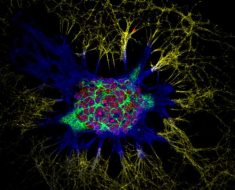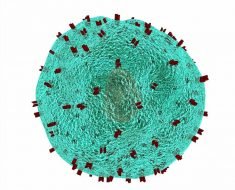
The future treatment of Parkinson’s Disease has undergone tremendous development in recent years. Now, a breakthrough in research has emerged, delivering the strongest results for both side-effect-free and long-lasting treatment effects.
The results are published in Nature Communications under the title “Enhanced production of mesencephalic dopaminergic neurons from lineage-restricted human undifferentiated stem cells.”
In the new research findings, DANDRITE group leader and Associate Professor Mark Denham has developed a method that ensures much higher purity of the so-called dopamine cells, which are crucial in connection with Parkinson’s disease.
“Stem cells offer promising potential for treating Parkinson’s disease by transforming into specific nerve cells. However, the precision of this transformation poses a significant challenge with current methods, resulting in low purity,” Mark explains.
Achieving high purity is critical for effectively restoring movement in patients.
In the Denham Lab, stem cells were genetically engineered to prevent them from generating the incorrect types of nerve cells. The newly engineered stem cells have an enhanced ability to produce the specific nerve cells required for Parkinson’s treatment, known as the dopaminergic cells.
Furthermore, the researchers show that the genetically engineered stem cells led to the restoration of movement in animal models. This breakthrough is a potential new therapeutic approach for treating Parkinson’s disease patients.
Experiments on rats have shown that both the quantity and purity of cultured stem cells are critical for the number and duration of treatments.
“Using our genetically engineered cells, we generate a higher purity of dopamine cells; for patients, this will reduce the recovery time and diminish the risk of relapse and medication use. My goal is to help patients stay off their medication, which requires high purity. So, my next step is to transfer my method to clinical trials,” Marks states.
More information:
Mark Denham et al, Enhanced production of mesencephalic dopaminergic neurons from lineage-restricted human undifferentiated stem cells, Nature Communications (2023). DOI: 10.1038/s41467-023-43471-0
Journal information:
Nature Communications
Source: Read Full Article





